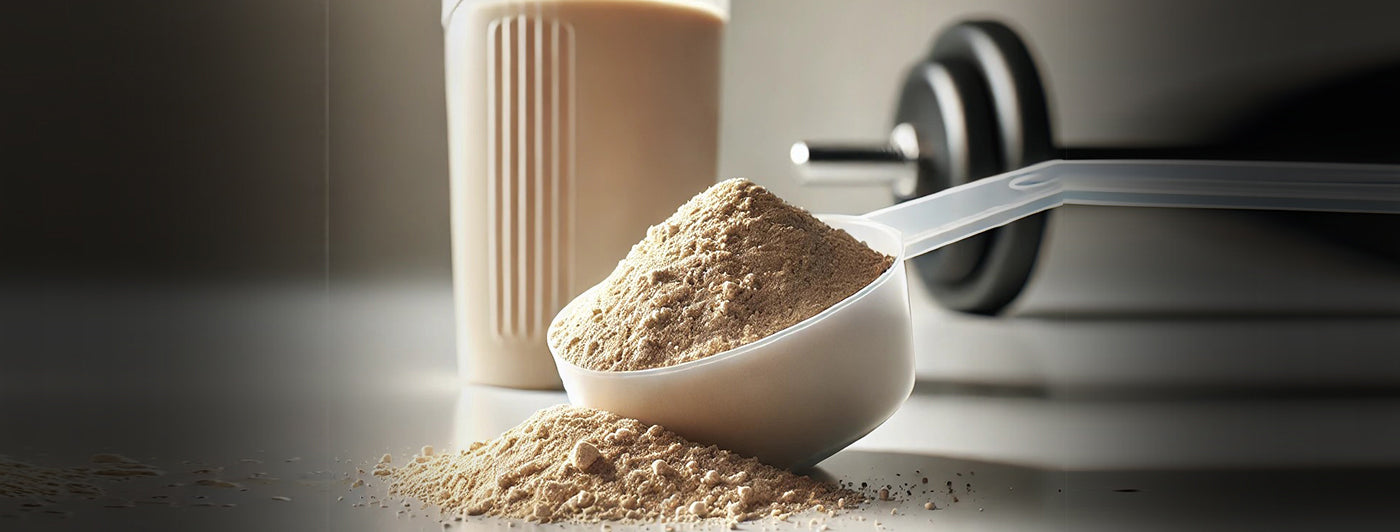Maintaining a balanced diet while keeping track of calorie intake is often a challenge, especially when aiming for specific fitness or weight management goals. One question that often arises is whether incorporating 1 scoop protein powder calories into your daily routine can help you stay on track. Protein powders have gained immense popularity for their convenience and nutritional benefits, but how do they fit into a calorie-conscious plan? Let’s dive in.
Understanding 1 Scoop Protein Powder Calories
When considering 1 scoop protein powder calories, it's essential to recognize that not all protein powders are created equal. The calorie count per scoop can range anywhere from 80 to 150 calories depending on the type and brand. This calorie range primarily comes from the macronutrient composition: proteins, carbohydrates, and fats.
For example, plant based protein powders often contain a mix of protein derived from peas and rice, sometimes blended with minimal carbohydrates and healthy fats. These calories, when consumed in moderation, can provide a significant boost to your dietary protein intake without exceeding your daily calorie goals.
Why Protein Matters in Calorie Management
Protein is not just a nutrient for bodybuilders or athletes; it plays a crucial role in maintaining satiety. Studies have shown that consuming adequate protein can help reduce hunger and prevent overeating. When you include 1 scoop protein powder calories as part of your diet, you're making a conscious choice to prioritize a macronutrient that aids in curbing cravings while supporting muscle repair and growth.
Choosing the Right Protein Powder for Calorie Goals
Avoiding Hidden Additives
When choosing a protein powder, it’s essential to examine the ingredient list meticulously. Many commercial protein powders contain additives such as class 2 preservatives, artificial sweeteners, and flavorings to enhance shelf life, taste, or texture. Understanding what are class 2 preservatives—like sodium benzoate and potassium sorbate—are widely used in processed foods but can raise concerns due to potential links to allergic reactions and gut microbiome disruption when consumed in excess.
Moreover, certain protein powders may include fillers like maltodextrin or corn syrup solids, which can add unnecessary calories and spike blood sugar levels. These hidden ingredients can hinder your calorie-conscious diet and overall health goals. Instead, opt for clean and minimally processed powders that rely on natural preservatives, such as tocopherols (vitamin E) or rosemary extract, to maintain freshness. By focusing on products with fewer artificial additives, you ensure that the protein you consume is of the highest nutritional quality and aligns with your dietary goals.
The Role of Vegan Protein
Traditional whey protein has been a staple in the market, while plant-based alternatives provide a nutritional composition compatible with diverse dietary needs. Vegan protein powders for muscle gain, derived from sources like peas and brown rice, can offer a balanced amino acid profile when used together. For example, pea protein contains branched-chain amino acids (BCAAs) such as leucine, which play a role in muscle protein synthesis, while rice protein contributes methionine, complementing the amino acid profile.
In addition to protein, plant-based powders may include nutrients such as fiber, antioxidants, and minerals like magnesium and iron, which are associated with digestion and overall health. They are also free of lactose and other common allergens, making them accessible to individuals with specific dietary requirements.
From an environmental perspective, plant-based proteins typically require fewer natural resources, such as water and land, for production compared to animal-based options. With a comparable calorie count to whey protein, they can be considered by those managing calorie intake while factoring in dietary preferences and sustainability.
Can You Use Protein Powder Without Exercise?
Many wonder if consuming protein powder without workout is effective or necessary. The short answer is yes, but it depends on your goals. Protein supports not just muscle repair but also overall bodily functions like hormone regulation and immune system health. While exercise enhances the need for protein, incorporating 1 scoop protein powder calories into your routine can still help meet daily protein requirements without pushing your calorie count too high.
How is Protein Powder Made?
Understanding how is protein powder made can provide insights into the nutritional value of what you’re consuming. Typically, protein powder is derived from sources like milk (for whey and casein) or plants (like peas and rice). The raw ingredients undergo processes like filtration, drying, and flavoring to create the final product. These steps ensure the protein content is concentrated while removing unnecessary components like water, fats, and carbohydrates.
Practical Tips for Staying Within Your Calorie Goals

1. Measure and Track
Always use a standard scoop to measure your intake of 1 scoop protein powder calories. Over-scooping can lead to calorie overconsumption, even when using a "low-calorie" product.
2. Pair with Balanced Meals
Protein powder is best used as a supplement to a well-rounded diet. Combine it with high-fiber foods like oats or fruits to create a satiating meal without excessive calories.
3. Watch Out for Mix-Ins
Adding milk, nut butter, or sweeteners can quickly increase the calorie count. If staying within strict calorie goals, opt for water or unsweetened almond milk as a base.
Conclusion
Incorporating 1 scoop protein powder calories into your diet can be a practical and effective way to meet daily protein needs without exceeding calorie goals. Whether you’re on a weight loss journey or aiming to maintain your current weight, being mindful of portion sizes and product selection is key. Always choose powders that align with your dietary needs, focusing on clean ingredients and nutritional quality.
Protein powders, when used wisely, can be a powerful ally in managing your calorie intake and achieving your health goals.











